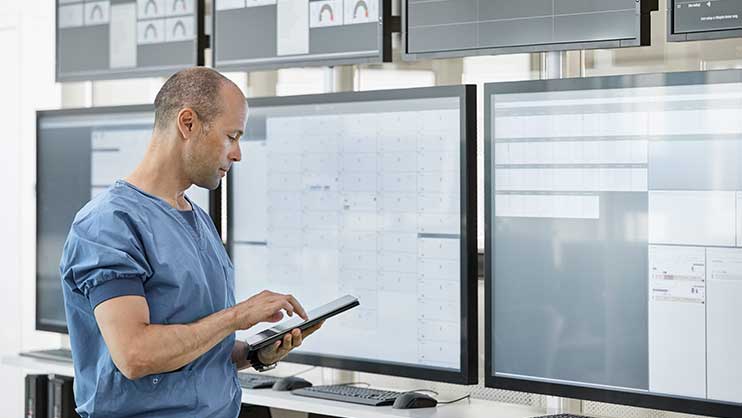In the fast-changing healthcare industry, the discussion over whether to hire a Chief Information Security Officer (CISO) with a strong technical background or a broader strategic and managerial skill set is more relevant than ever. Healthcare leaders are grappling with making the best decision for their organizations, considering the unique challenges of protecting sensitive patient data and complying with strict regulations. This article explores the complexities of the role, the advantages and disadvantages of technical versus non-technical expertise in a healthcare CISO, and how to navigate this crucial hiring decision.
הבנת התפקיד של CISO בתחום הבריאות
האחריות העיקרית של CISO בתחום הבריאות היא להגן על נכסי המידע של הארגון מפני איומי סייבר ולהבטיח עמידה בחוקי פרטיות המידע הרפואי. זה כרוך במשימות כמו פיתוח ויישום אסטרטגיות אבטחת סייבר מקיפות, ניהול סיכונים ותגובה לאירועים.
דרישות אבטחה בתחום הבריאות
תעשיית הבריאות כפופה לתקנות אבטחה רבות כדי להגן על מידע המטופלים. לדוגמה, כלל האבטחה של HIPAA קובע סטנדרטים להגנה על מידע מטופלים המאוחסן אלקטרונית ודורש הערכות סיכונים קבועות כדי להבטיח תאימות. עמידה בתקנות אלו מחייבת CISO הבקיא באבטחת סייבר והבנת דרישות האבטחה הספציפיות בתחום הבריאות.
האתגרים העומדים בפני מנהלי אבטחת מידע בתחום הבריאות
Healthcare CISOs encounter unique challenges, including managing the security of digital health records, navigating complex regulatory environments, and addressing an increasing number of cyber threats. Recent reports highlight the growing threat landscape in healthcare, making the role of the CISO more critical than ever. The Health Industry Cybersecurity Practices outline the current Top 10 Mitigating Practices, including email protection systems, endpoint protection systems, access management, data protection and loss prevention, asset management, network management, vulnerability management, incident response, medical device security, and cybersecurity policies.
CISO טכני לעומת לא טכני: יתרונות וחסרונות
הבחירה בין CISO טכני ולא טכני כרוכה בהבנת היתרונות והמגבלות שכל אחד מהם מביא לארגון.
CISO טכני
A CISO with a strong technical background can offer valuable insights into cybersecurity challenges faced by healthcare organizations. Their hands-on experience enables them to effectively identify vulnerabilities, respond to incidents, and implement technical solutions. However, relying solely on technical expertise may lead to a narrow focus that overlooks broader strategic and compliance-related issues. A technical CISO may uncover gaps missed or covered up by the security team.
CISO לא טכני
Conversely, a non-technical CISO brings a strategic perspective to the role, focusing on aligning the cybersecurity strategy with the organization’s overall goals and ensuring compliance with health information privacy laws. They excel in risk management, communication, and leadership. Yet, with a solid technical foundation, they may be able to understand and address the nuances of cybersecurity threats.
גורמים שיש לקחת בחשבון בעת העסקת CISO בתחום הבריאות
When deciding between a technical and non-technical CISO, healthcare executive leaders should consider various factors, including industry trends and best practices, as well as the impact on data security and compliance. Staying informed about current industry trends and best practices is crucial, as the evolving nature of cyber threats and regulatory changes requires a CISO who can adapt and lead the organization through these shifts. Choosing between a technical and non-technical CISO can significantly impact the organization’s ability to maintain robust data security and compliance.
